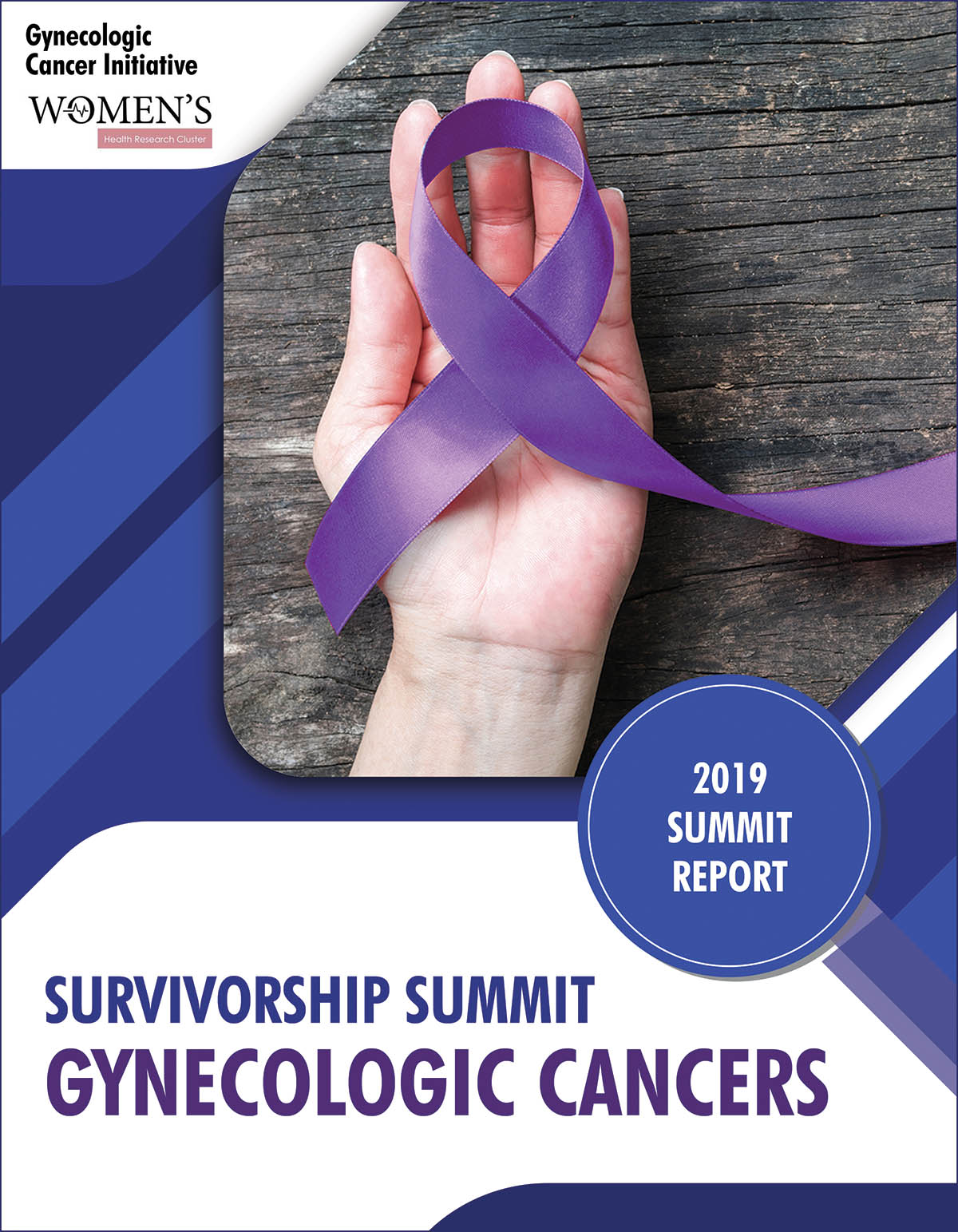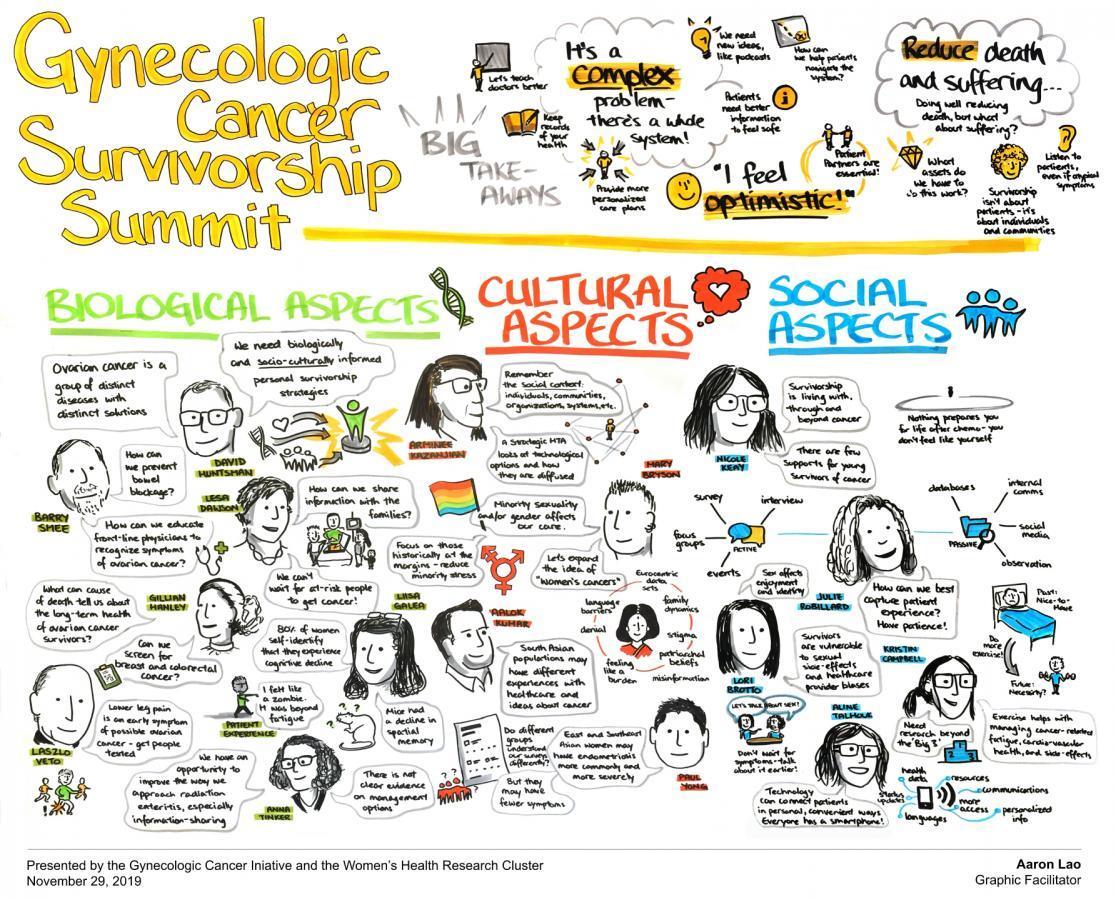To fill this gap, the Womens Health Research Cluster and the Gynecologic Cancer Initiative co-hosted a Survivorship Summit to stimulate research in British Columbia. Specific objectives for the event were to (1) identify key questions and priorities for survivorship research in BC, and (2) to gain a better understanding of the assets and resources in BC that can support survivorship research.
The inaugural event took place on Nov 29, 2019 at the University of British Columbia and was attended by 56 patient partners, healthcare practitioners and scholars. To emphasize the importance of approaching this work with a biopsychosocial lens, the summits theme was Biologically, and Socio-Culturally Informed Gynecologic Cancer Survivorship Strategies and the event was divided into 3 corresponding segments: biological, cultural and social. Each segment featured 4-6 short presentations from survivors, caregivers, and experts. Throughout the event, moderators facilitated discussion amongst attendees to inspire new ideas and collaborations that could help move the field forwards.
The following report summarizes key points that arose throughout the day. Specifically, it highlights key priority areas, research questions, resources, assets and challenges relating to gynecologic cancer research and practice that were identified by presenters and audience members. The Womens Health Research Cluster and the Gynecologic Cancer Initiative hope that this information will be used to generate new hypotheses and educate healthcare providers about pertinent issues related to gynecologic cancer care. As such, we welcome you to share this document with your family, friends and colleagues.
To read the report, cilck on the image above. Alternatively, you can check out a snapshot of the key take-aways by viewing clicking the graphic recording below!


